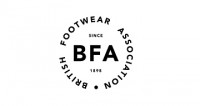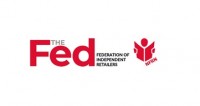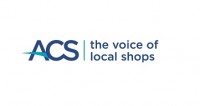The Best Small Shops competition gets a new look
Posted on in Business News, Cycles News
The Best Small Shops competition was first launched back in 2015 and has since attracted thousands of entrants, narrowed down to hundreds of shortlisted shops, tens of runners-up and 3 worthy winners.
The competition celebrates, not only the commitment and creativity of entrepreneurial independent retailers on the UK's High Streets but also, the central role independent retailers play in building local communities.
The competition, part of the consumer-facing Indie Retail website, is managed by the Independent Retailers Confederation (IRC), a well-established organisation that brings together like-minded trade associations with interests in the independent retail sector.
Best Small Shops rebranding
Over the past five years the Best Small Shops competition has seen huge levels of growth into what is now a nationally recognised brand that is endorsed by MPs, key retail organisations, national and local press and of course has benefited thousands of shops.
This year sees the Best Small Shops competition set to grow ever further. 2020 has already seen the launch of a new monthly Indie Retail newsletter, confirmation of the Houses of Parliament reception and improvements to the entry process and judging criteria.
To celebrate this fast-paced level of growth and to amplify the competition further still, the IRC are delighted to announce a rebranding of the Best Small Shops competition, one that better reflects the commitment and high-quality level of independent shops that it represents throughout the UK.
The new logo features a small shop which is illustrated by fitting the competition name inside, with a range of colours that are complimentary to the Indie Retail brand - the platform on which the Best Small Shops competition is launched from.
The Best Small Shops competition is an umbrella brand that represents a range of retailers across the UK, with previous shortlisted shops ranging from cheesemongers to cycle shops, from cafes to record shops, from as far north as the Orkney Islands located above Scotland, all the way down to the South of England in Devon and everywhere in-between.
The Chairperson of the IRC, Mark Walmsley, said of the new branding "The IRC strongly believe that this new logo fully incorporates the diversity and breadth of the competition; the range of colours and professionalism will make an easily recognisable focal point for this year's entrants to proudly display."
Submit your entry now
This year's competition opens today! It will remain open for 5 months, giving shops an extended time frame to carefully fill in the entry form and be in for a chance to be named Best Small Shop of 2020.
To enter the competition you will need to:
- Be an independent retailer, defined as a non-corporate business selling goods or services to the public for use or consumption rather than for resale, from a business rated premises in the UK
- Create a public facing listing on the Indie Retail website
- Complete the online competition entry form in full at bestsmallshops.uk
- Submit your entry before 3pm on the 25th July 2020
Useful links
If you have any other queries please contact us.






















